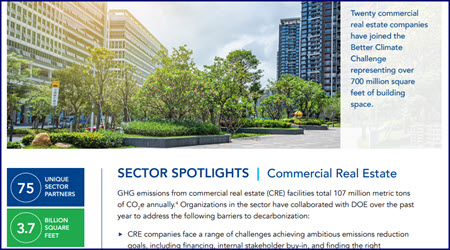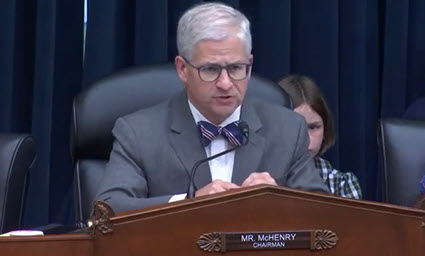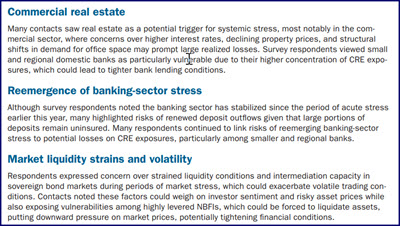
Roundtable Chair John Fish (Chairman and CEO, Suffolk), right, was honored this week with the Lamplighter Award from the American Friends of Lubavitch (Chabad), along with Senate Majority Leader Chuck Schumer (D-NY) and Kurt Newman, President and CEO of Children’s National Medical Center. (Photo: Mr. Fish with Rabbi Levi Shemtov, left. | Watch Mr. Fish’s powerful comments)
Lamplighters
Roundtable Leaders’ Comments

DeBoer asked the Lamplighter audience “… for a moment of silence to internally pledge that each of us will do our part, every minute, hour and day to reject evil, to help those in need, and to embrace the goodness of ethnic and religious diversity worldwide.” (Read DeBoer’s remarks and watch Mr. Fish’s comments)
# # #

The Biden administration today revealed a suite of federal resources—including low-interest loans—to assist commercial to residential conversions that increase housing supply, revitalize urban downtowns, and cut climate pollution. (White House fact sheet; Bloomberg, Oct. 27).
Holistic Federal Strategy
Adaptive Reuse a “Win-Win”

The initiative builds on the Biden Administration’s announcement last July to boost the nation’s housing supply. (Roundtable Weekly, July 28). The Roundtable will continue to serve as a conduit between our members and the Biden Administration to help design impactful policies that can assist with office to residential conversions.
# # #

Roundtable members are among the commercial real estate partners recognized in the U.S. Department of Energy’s (DOE) Better Buildings Initiative 2023 progress report released on Monday. This voluntary public-private partnership with more than 900 participating organizations has collectively saved $18.5 billion through energy efficiency improvements, and cut carbon dioxide emissions by nearly 190 million metric tons, since its launch in 2011. (DOE’s Better Buildings Initiative Report and PoliticoPro, Oct. 23)
DOE’s CRE Partners
Tools and Best Practices

DOE’s Better Buildings Initiative website provides extensive resources on the agency’s wide-ranging effort to partner with leaders in the public and private sectors to make the nation’s commercial buildings, industrial plants, and homes more energy-efficient by accelerating investment and sharing successful best practices.
# # #

U.S. banking regulators issued two announcements on Oct. 20 related to their sweeping set of proposed rules to increase capital requirements for the nation's largest banks, which could significantly affect liquidity available for commercial real estate transactions, impact asset values, and influence economic growth. The proposal, known as the “Basel III Endgame,” is the last major regulatory response designed to address failures from the global financial crisis of 2007-2008. (Bloomberg and Reuters, Oct. 20 | Roundtable Weekly, July 28)
Stakeholder Comments
Congressional Opposition

Goldman Sachs’ 10,000 Small Businesses Voices recently announced the launch of a multifaceted national media campaign that will urge the Federal Reserve to abandon the proposed Basel III Endgame regulation. The campaign will feature new survey data showing 87% of small business owners say it is important for their elected officials to weigh in with The Fed about the impact of new bank capital requirements.
# # #

Elevated commercial real estate valuations are increasingly viewed as a near-term risk that could stress the U.S. financial system, according to the Federal Reserve’s October 2023 Financial Stability Report. The central bank’s semiannual report also cited inflationary pressures, interest rate increases, and global economic volatility as vulnerabilities—even though survey data was collected before the recent escalation of geopolitical tensions in the Middle East. (Fed’s Financial Stability Report, Oct. 2023)
CRE Risk Emphasized
WorkPlace Return Pressure

Additional risks that continued to feature prominently in the Fed survey were associated with the reemergence of banking-sector stress, market liquidity strains, and volatility.
# # #